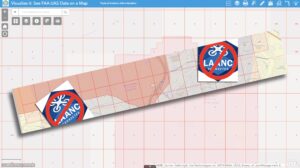This is a very hot topic right now, and likely only getting hotter.
I’m talking about the drastic uptick in attacks on drones and drone operators. DSPA takes this VERY seriously, and want to do our part to help where we can when it comes to this issue.
To that end, we have developed a business card sized Emergency Situation Checklist. It can be downloaded and printed to keep in your wallet. Print out a few extra, and give them to your friends. In this article, we’ll expand a bit on the checklist. It’s pretty difficult to get all of the information you need on a business card and still keep the font size large enough to read. But the checklist is great to keep with you for referral. Download here.
So, if you ever find yourself in a situation where you are threatened or feel unsafe, please do the following:
First, stay calm! Unless you deal with confrontational situations frequently, your first instinct is to panic and/or freak out. I have no doubt mine would be. But don’t. If at all possible, keep your wits about you.
Your first responsibility is to make yourself and your crew safe. Whether that means diffusing the situation, or get to safety, that needs to be your primary concern. Your drone is not worth your life. Leave it if necessary.
Second, call 911. This is an emergency; don’t hesitate to do this. Especially if there are weapons involved. And if there are weapons involved, tell the 911 Operator. A harassment call will become a priority call if you mention there are weapons involved. It those weapons are firearms, mention that. Not only for your protection, but for the protection of the responding officers.
Conversely, do not say weapons are involved if they aren’t. You will get in trouble for that.
Third, record everything!!! Wear a body cam if you have one. Turn the drone around and hit the record button. You won’t have audio, but you’ll have video evidence. And of course, everyone has a phone these days, so use that. You will need all of that evidence.
Take photos of the area, the damage, and anything else you can think of. Including the drone, people involved (carefully), and vehicle involved (again, carefully). Download any flight logs and imagery from the drone is possible. If the drone crashed, make sure you look for the memory card if it’s not in the drone. It may have fallen out. Do not pick up the drone if it’s smoking.
Next, gather any additional evidence you can, using whatever means possible. Even if that means getting a stick and writing the license plate number in the dirt. Any info, any way possible. Get names and contact info of all witnesses.
Then file a police report. On site if possible, or in person at the police station as soon as possible…even if they tell you it’s a civil matter. And get copies. Digital and/or hard copies. This would also be a good time to let the department know that these types of incidents need to be reported to the FAA for further scrutiny. The vehicle for that is the FAA’s Law Enforcement Assistance Program (LEAP). Each area of the country has a specific LEAP Agent assigned to them. In order to find who your area’s LEAP Agent is, have the officer contact LEAP@faa.gov. They’ll assist the local police with the next steps.
Once this is done, sit down and write down every detail you can think of. Have any witnesses do the same. It is incredibly important to do this while the incident if fresh in your mind and the minds of any witnesses. Use a digital platform is possible. If not, use our phone to take a photo of notes. That way you will have the document time-stamped. Having that reference time is crucial, whether for a civil trial, or a criminal one. Time is of the essence here. Make copies of all of this, preferably backed up to different hard drives.
Reach out to Victim’s Assistance. Each and every police station or District Attorney’s office has either an office for Victim Assistance, or a Victim’s Advocate. They can be an invaluable resource. They can quite possibly walk you through the entire process. Don’t be shy about this. That is their job. Especially if this was a particularly traumatic experience. Having weaponry pointed at you, or even a person threatening you with bodily harm is not an everyday experience for the vast majority of people. We all react differently. Talk to the advocate.
Once that’s done, you can start with the after event process. That includes things like reaching out to your insurance company. They can also be an advocate for helping you through this. They have lawyers. In some cases, they’ll even make a payout to you (if you have the coverage), and then go after the responsible party. That is their job. You’ve been paying insurance premiums for quite a while, let them earn it.
If there has been damage, contact a civil attorney. If your insurance company doesn’t you need to. If this drone was used under 107, make sure you add potential loss of income to the equation. And see if you can find a good civil attorney who may also be a drone or r/c aircraft owner. That way they’ll have a personal dog in this fight.
And make some phone calls on your own. It’s not unreasonable to reach out to your local Flight Standards District Office (FSDO). Tell them what happened, and where the process is. That way, if LEAP does get involved, they’ll be ready. Take the name of whoever you contacted. Also, some local police agencies are under the misconception that something like this is only a Federal issue. So they may choose not to get LEAP involved. In that case, FSDO may choose to. And they’ll have the means and method to do that very thing.
Add the local FBI office to your call list if it’s serious enough. Was there weaponry involved? Was there bodily injury? Did the person prevent you from performing your duties as a flight crew? Did you feel they were serious when they threatened to harm you or your drone? Those are all violations of federal law. They are different sections of 18 USC §32.
And finally, you’re going to have dive deep and muster all of the patience you possess. The federal government moves slowly. So will your case. That doesn’t mean don’t do anything. As you go through this process, and talk to different agencies, ask them if you can call them occasionally and check in on the progress of your case. And then do it. Be nice about it obviously, but if you make it a habit of contacting them on a regular basis, your case will stay in the forefront of their minds. You can almost guarantee those folks have a full plate of cases to work on.


